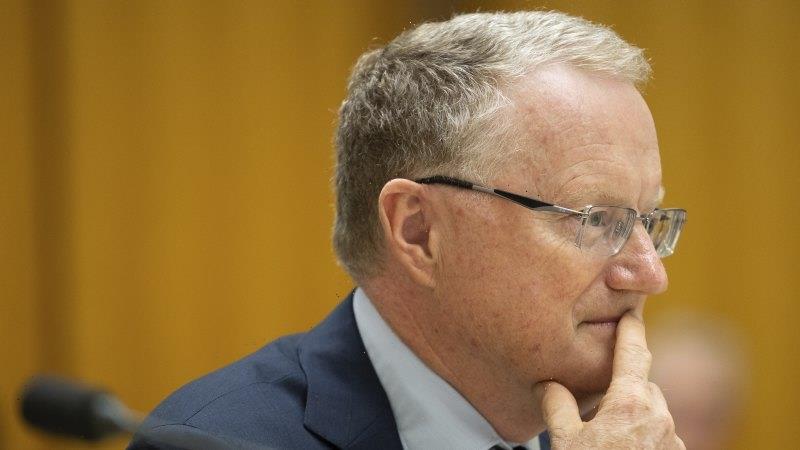Reserve Bank governor Philip Lowe has denied accusations he and his board are trying to drive the country into recession while warning interest rates are yet to peak as the bank fights to bring down inflation.
Lowe appeared at a sometimes fiery Senate estimates hearing on Wednesday, a week after the RBA board lifted the official interest rate by 0.25 percentage points to 3.35 per cent and warned more rate rises were on the cards in coming months.
Greens finance spokesman Nick McKim asked Lowe why he should continue in his job, after the governor said in late 2021, when the cash rate was 0.1 per cent, that interest rates would not rise until 2024.
“You seem prepared to smash Australia into a recession by trying to squash demand in response to inflation,” McKim said.
Lowe said that was not the bank’s intention, adding the focus was on bringing down inflation, which at 7.8 per cent, remained far too high.
“We want to get inflation down because it’s dangerous. It’s corrosive, it hurts people. It damages income inequality. And if it stays high, it leads to higher interest rates and more unemployment,” he said.
Lowe also pointed to the good news in the economy: the unemployment rate, at 3.5 per cent, is at near 50-year lows.
“We want to preserve as much of that good news, that progress we’ve made on the labour market as possible. So there’s a narrow path here, and there are risks in both directions. Our objective is to travel that narrow path as best we can,” Lowe said.
The Reserve Bank’s tool for fighting inflation is lifting interest rates, and Lowe said the board had not reached the peak yet.
“How far we have to go up, I don’t know. It’s going to depend upon the inflation data, the resilience of spending, the strength of the global economy, and what’s happening with prices and wages. But I don’t think we’re at the peak yet,” he said.
Financial markets expect the cash rate to peak at 4.1 per cent by August, but some analysts believe the RBA will have to go much higher with interest rate settings.
TD Securities on Wednesday said it now expects the cash rate to hit 4.35 per cent. It had been forecasting a peak of 3.85 per cent.
There are emerging signs the RBA’s sharp lift in interest rates is starting to bite.
Data compiled by ratings agency S&P Global, which tracks the number of loans in arrears that are contained in mortgage-backed securities, shows a lift in people struggling to make their repayments.
The proportion of loans at least 30 days in arrears increased to 0.76 per cent in December from 0.65 per cent in November. Among so-called non-conforming loans, which are those made with lower levels of supporting documentation, the arrears rate lifted to 3.2 per cent from 2.65 per cent.
S&P said while arrears rates normally increase in the Christmas period, the lift in 2022 was “more pronounced than in previous years … after multiple interest rate rises being passed on to borrowers”.
Lowe said the RBA has spoken to commercial banks about their mortgage holdings, and households with both fixed-rate and variable loans have largely been able to build up buffers. Lowe said the banks reported many people with fixed-rate loans have also been pretty cautious.
“They knew interest rates weren’t going to stay low forever. They’ve taken the low-interest rate to three or four years as a bonus and saved. That’s good,” he said.
“Not everyone is in that case, though. Some people have taken the low-interest rate to allow them to spend more, and those people are going to face a lot more difficulty when interest rates go up by 3 per cent.”
Lowe said he also understood that many households were struggling off the back of the nine consecutive interest rate hikes.
“I get a lot of people writing to me at the moment telling me their personal circumstances and it’s really really tough, and we understand that,” he said. “I read those letters and hear those stories with a very heavy heart.
“But I also understand that if we don’t get on top of inflation, it means even higher interest rates and more unemployment.”
Cut through the noise of federal politics with news, views and expert analysis from Jacqueline Maley. Subscribers can sign up to our weekly Inside Politics newsletter here.
Most Viewed in Politics
From our partners
Source: Read Full Article
